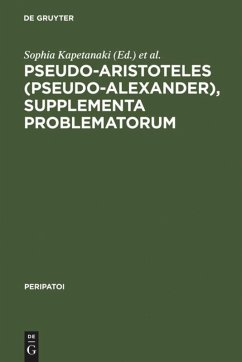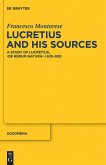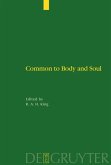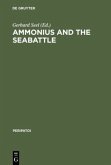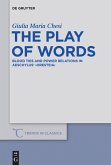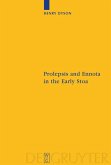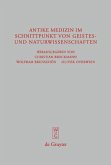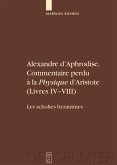This is the first edition for nearly 150 years, taking into account a fuller range of manuscripts than either of the previous editions, of the collection of problems on natural science and medicine edited by Bussemaker in 1857 as pseudo-Aristotle, Problemata Inedita, and by Usener in 1859 as pseudo-Alexander of Aphrodisias, Problems books 3 and 4, the attribution differing in different manuscripts. The new critical text, based on collation of 31 Greek manuscripts, is accompanied by an annotated English translation. An extensive introduction reconstructs the complex manuscript tradition and examines the origin and nature of the collection, which is argued to be complex, including two distinct groups of problems from approximately the time of Alexander (the second to third centuries AD) together with other material which is similar in character and origin to the Problems included in standard editions of Aristotle, compiled in the third century BC and in some cases related to extant or lost works by Aristotle's colleague Theophrastus. Part of the collection is also related to the eighth-century Latin Problemata Bambergensia. The material in this book will be of interest to historians of ancient science, medicine and thought, and to students of the transmission of ancient texts.

